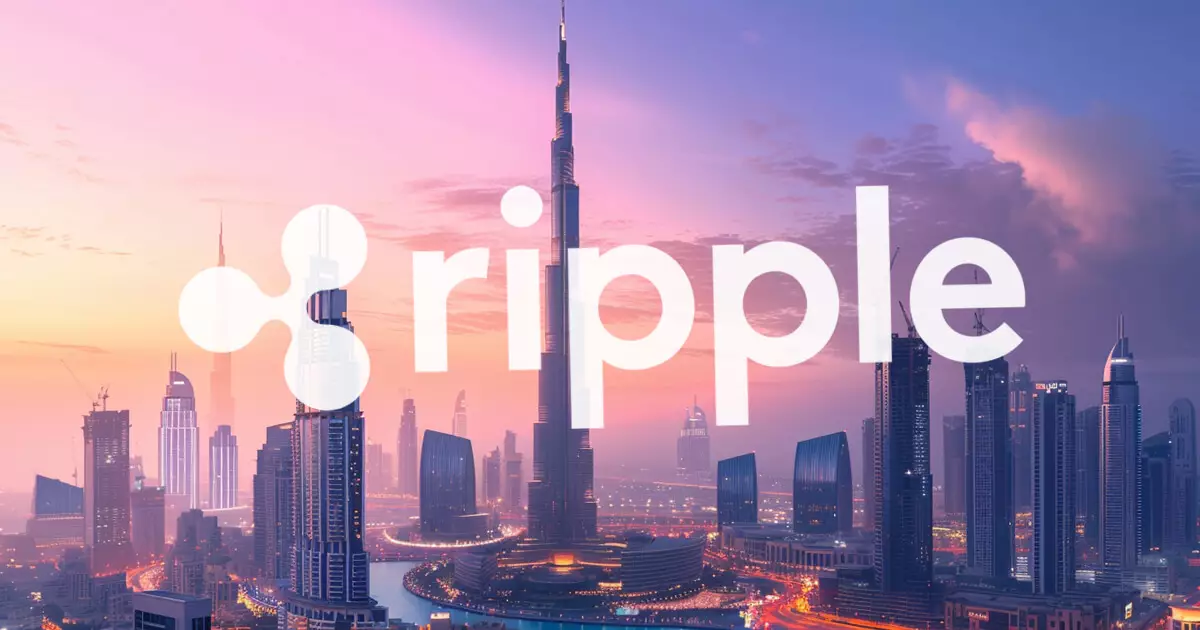In a landmark achievement, Ripple has received in-principle approval from the Dubai Financial Services Authority (DFSA), positioning the company as a pioneer among blockchain-based payment service providers within the United Arab Emirates (UAE). This development, officially announced on October 1, not only underscores Ripple’s ambition to enhance financial services innovation in the region but also signifies its status as a globally recognized regulated entity. As the first of its kind to gain such regulatory endorsement from the DFSA, Ripple’s incremental growth trajectory seems well poised for further enhancement.
The DFSA approval comes as a significant addition to Ripple’s impressive collection of over 55 global licenses, which already includes essential endorsements from prestigious bodies like the Monetary Authority of Singapore (MAS) and the New York Department of Financial Services (NYDFS). With the buoyancy of this new approval, Ripple is set to amplify its operational footprint within the Dubai International Financial Centre (DIFC) through the deployment of its advanced digital asset infrastructure across the UAE market. Notably, the anticipated launch of Ripple Payments Direct (RPD) for cross-border transactions stands out as a promising enhancement to Ripple’s service offerings.
At the core of Ripple’s strategy lies the ambition to redefine cross-border payment systems, aiming for greater speed and efficiency coupled with rigorous regulatory compliance. The DFSA license will enable Ripple to leverage its innovative technologies for asset custody, liquidity management, and facilitate smooth transitions between fiat and digital currencies. As businesses increasingly seek cost-effective solutions for international transactions, Ripple’s initiatives could prove transformative, potentially mitigating long-standing inefficiencies prevalent in traditional banking systems.
Challenging Industry Dynasties
Ripple’s advancements have not gone unnoticed in the financial services sector. A recent report from global investment bank Houlihan Lokey highlights Ripple’s potential to emerge as a formidable challenger to SWIFT, a longstanding leader in cross-border payments. The recognition of disruptive entities like Ripple, along with burgeoning competitors amongst FinTech, card networks, and other banking infrastructures, portrays a shifting paradigm within the industry. The once-unchallenged SWIFT is now compelled to recalibrate its strategies in response to this mounting competition.
Middle East: A Land of Opportunities
Ripple’s license from the DFSA is emblematic of a broader strategic vision aimed at expanding its influence in the Middle East. The company’s regional headquarters, established in Dubai in 2020, is a testament to its commitment to capitalize on the UAE’s regulatory clarity. Moreover, this regulatory environment has enabled Ripple to tap into quickly growing markets in Africa, South Asia, and beyond, illustrating its foresight in identifying and investing in lucrative avenues for innovation and growth.
Ripple’s recent achievement in obtaining DFSA approval is more than just regulatory compliance; it is a calculated strategy that enhances its ability to innovate and adapt within the rapidly evolving financial ecosystem. As the company gears up to roll out its services in the UAE and beyond, stakeholders in the financial world will undoubtedly observe the impact of such advancements on global payment systems, sparking a new era of efficiency and competition. Ripple’s journey in the Middle East not only sets the stage for its future endeavors but also signifies a profound shift in how cross-border payments are envisioned and executed.

